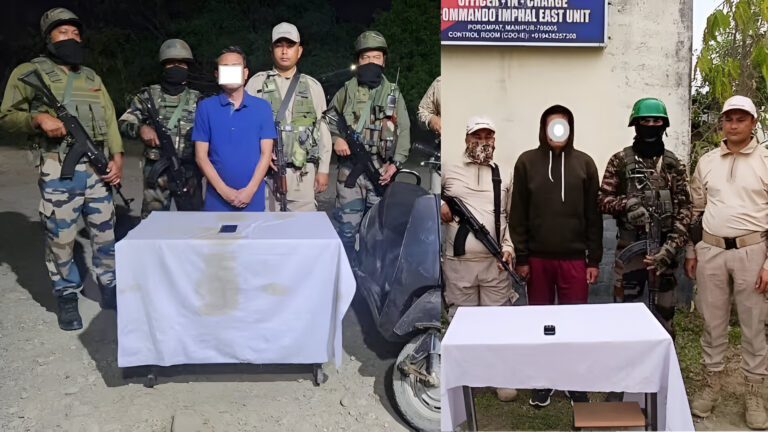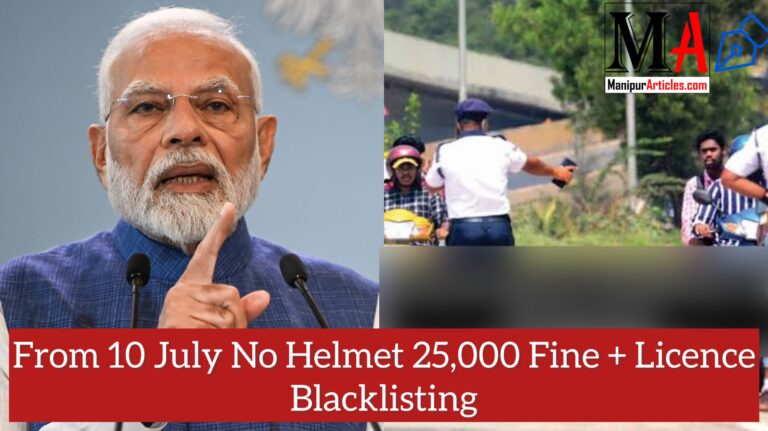Congress Criticizes PM Modi for Neglecting Manipur Amid Global Travels
The Congress party has criticized Prime Minister Narendra Modi for not visiting Manipur, despite the ongoing ethnic violence that has plagued the state since May 2023. Congress General Secretary Jairam Ramesh accused Modi of finding time to travel globally but not engaging with the distressed people of Manipur. He pointed out that the Prime Minister had failed to visit the state or meet with local political leaders, including those from his own party, while the region continues to suffer from violent clashes between the Meitei and Kuki-Zo communities, which have led to over 220 deaths.
Congress Criticizes PM Modi’s Global Travels Amid Manipur Crisis
In recent times, the Congress party has been vocal in its criticism of Prime Minister Narendra Modi, particularly concerning his international engagements during periods of domestic unrest. A significant point of contention is Modi’s absence from Manipur, a state grappling with ethnic violence since May 2023. This critique underscores a broader debate about leadership priorities during crises.
The Unfolding Crisis in Manipur
Manipur, nestled in India’s northeastern corridor, has been ensnared in a web of ethnic tensions, primarily between the Meitei and Kuki-Zo communities. These clashes have resulted in over 220 fatalities and have displaced thousands, disrupting the socio-economic fabric of the state. The violence has not only led to loss of life but has also instilled a pervasive sense of insecurity among residents.
Congress’s Allegations Against the Prime Minister
On January 14, 2025, marking the first anniversary of the ‘Bharat Jodo Nyay Yatra’ launched from Manipur, Congress General Secretary Jairam Ramesh publicly criticized Prime Minister Modi. Ramesh highlighted that while Modi has undertaken numerous international trips, he has not visited Manipur to address the ongoing crisis. He further noted that the Prime Minister has refrained from meeting local political leaders, including those from his own party, exacerbating feelings of neglect among the state’s populace.
The Significance of Leadership Presence in Crisis Situations
In times of crisis, the presence of national leadership serves as a beacon of assurance and solidarity. A visit from the Prime Minister could symbolize the central government’s commitment to resolving the issues plaguing Manipur. Such an act would not only boost the morale of the affected communities but also facilitate a deeper understanding of the ground realities, enabling more effective policy interventions.
Balancing International Diplomacy and Domestic Responsibilities
While international diplomacy is crucial for a nation’s global standing, it is imperative that domestic crises receive immediate and adequate attention. The criticism from Congress brings to light the delicate balance that leaders must maintain between global engagements and addressing internal challenges. Neglecting domestic issues can lead to a perception of detachment, potentially eroding public trust in leadership.
The Role of Opposition in Democratic Accountability
The Congress party’s critique exemplifies the role of opposition in a democratic setup. By holding the ruling party accountable, the opposition ensures that governance remains transparent and responsive to the needs of all citizens. Such checks and balances are vital for the health of a democracy, fostering a culture where leaders are continually reminded of their duties towards the populace.
The Human Cost of Political Neglect
Beyond political debates lies the stark reality of human suffering in Manipur. Families have been torn apart, livelihoods destroyed, and a once harmonious community fragmented by violence. The perceived neglect from national leadership adds to the trauma, making residents feel abandoned in their darkest hours. Addressing their plight requires more than policy measures; it demands empathy, understanding, and direct engagement from those in power.
The Path Forward: Bridging the Gap
To rebuild trust and restore peace in Manipur, a multifaceted approach is essential:
- Direct Engagement: The Prime Minister and central leadership should prioritize visiting the state, engaging with local communities, and understanding their grievances firsthand.
- Collaborative Governance: Working closely with state leaders across party lines can foster a unified approach to resolving the crisis.
- Transparent Communication: Regular updates on the steps being taken to address the situation can reassure the public and dispel feelings of neglect.
- Long-term Solutions: Beyond immediate relief, implementing policies that address the root causes of ethnic tensions will pave the way for sustained peace.
Conclusion
The criticism levied by the Congress party against Prime Minister Modi highlights a crucial aspect of leadership: the need to be present and responsive during times of domestic crises. While international engagements are vital, they should not come at the expense of addressing pressing issues within the nation. For the people of Manipur, a visit from their Prime Minister could serve as a powerful gesture of solidarity, signaling that their voices are heard, and their suffering acknowledged.
FAQs
- What is the main criticism Congress has against PM Modi regarding Manipur?
- Congress criticizes PM Modi for not visiting Manipur amid ongoing ethnic violence, despite his frequent international travels.
- Why is a visit from the Prime Minister important during such crises?
- A visit signifies national solidarity, boosts morale, and demonstrates the government’s commitment to resolving the crisis.
- How many lives have been lost due to the violence in Manipur?
- Over 220 lives have been lost since the onset of ethnic clashes in May 2023.
- What are the primary communities involved in the conflict?
- The Meitei and Kuki-Zo communities are the primary groups involved in the ongoing ethnic tensions.
- What steps can be taken to address the situation in Manipur?
- Direct engagement from national leadership, collaborative governance, transparent communication, and implementing long-term solutions to address root causes are essential steps.


